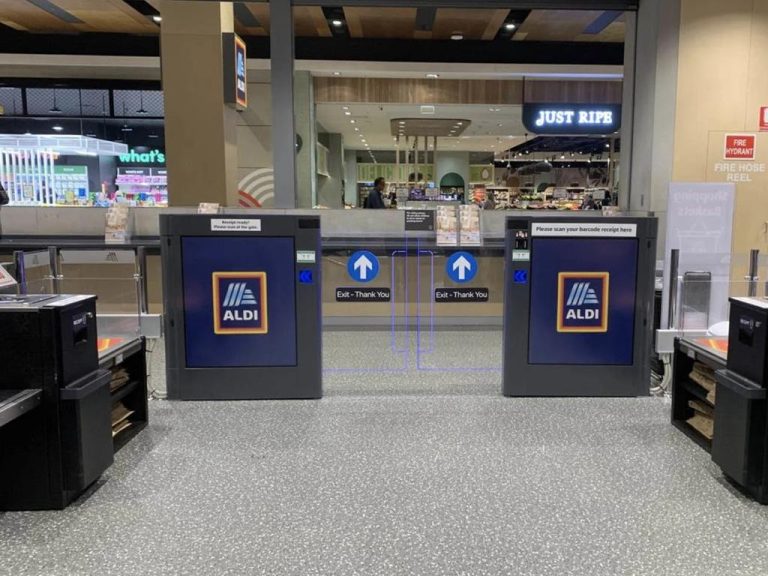What the extension of eviction bans means for commercial tenants and landlords

The six-month moratorium on evictions has been extended for commercial tenants across Australia, although experts say some may still face the prospect of losing their businesses when the bans end.
The six-month moratorium on evictions put in place in March 2020 protected commercial tenants from being evicted if they were unable to pay rent due to business closures, and subsequent financial losses, during COVID-19 lockdowns.
Prime Minister Scott Morrison encouraged all commercial tenants and landlords to try to come to an agreement to maintain the tenancy until the COVID storm had blown over.
This resulted in rent reductions, deferrals and waivers across the country, with the expectation that six months would be a sufficient period of time for the health crisis to wane.
National cabinet in April announced a national code of conduct imposing a set of good faith leasing principles for commercial tenancies, where the tenant has a turnover of less than $50 million per annum and a minimum 30% reduction in turnover due to the pandemic.
Some of these leasing principles included a halt on rent increases and no penalties for a tenants exiting a tenancy early due to financial hardship caused by COVID-19.
State governments have extended the commercial moratorium until at least December, with some continuing into 2021.

State governments have extended commercial eviction moratoriums until the end of 2020 or early 2021. Picture: realcommercial.com.au/lease
Realestate.com.au’s executive manager of economic research Cameron Kusher said the eviction ban has no doubt helped commercial tenants stay in business, although some could be forced to vacate their properties once the moratorium ends due to lack of or no income.
“[COVID-19] has certainly been challenging for commercial tenants. Many have chosen to shut for a period of time while others are being heavily supported by government measures, such as the moratorium on evictions and JobKeeper,” Mr Kusher said.
“[But] I would expect if landlords aren’t willing to renegotiate leases in light of reduced incomes and the impact of the recession, that we will see many tenants vacate their commercial spaces, particularly in the retail and office sectors.
“I would say overall the moratorium on evictions has been a positive for tenants but in some cases it has likely been a negative for landlords,” Mr Kusher said.
One of the main reasons for this is that while landlords have had financial help from government and holidays on loan repayments from the banks, it doesn’t stop interest accruing.
“While state and territories put in place moratorium frameworks that largely focused on negotiation as a main tool for helping people during COVID-19, the federal government didn’t put in place framework for banks and insurers, so that banks were issuing mortgage relief where the interest was still accruing, which made it difficult for a landlord to reduce rent,” National Association of Tenants Organisation spokesperson Leo Patterson Ross said.
It’s for this reason that some landlords may have no choice but to evict tenants once the moratoriums end.
The Property Council of Australia opposed the extension of the commercial leasing code of conduct, arguing it potentially threatened the viability of many small and mid-sized commercial property businesses.
The Property Council released a report in August estimating an extension of the code by state and territory governments would impose an extra $4.8 billion in costs on commercial property owners, on top of the initial $4 billion impact on commercial landlord revenues between April and September.
“While the code may have been justified during the extraordinary time in which it was conceived, it involves one part of the business community, many of them small owners, being legally obligated to give money to another part of the business community,” Property Council chief executive Ken Morrison said in August.
Here is a breakdown of the eviction moratorium state-by-state:
Victoria
The Victorian government has extended the ban on rent increases and evictions for commercial tenants where rent relief has been sought until 31 December, 2020.
Since the commercial tenancy relief scheme began in late March, the Victorian Small Business Commission has fielded more than 9,800 rent-related enquiries from small business tenants and landlords.
Of the cases that went to mediation, almost 90% resulted in tenants and landlords reaching common ground.
As part of the extension of relief measures until the end of the year, commercial landlords may be eligible for an increased land tax discount of 50% – doubled from the earlier 25%. There is also a $60 million hardship fund for eligible small commercial landlords, which provides up to $3,000 per tenancy.
However, the Real Estate Institute of Victoria argued there was not enough support for commercial landlords who are already struggling to keep their properties going.
Commercial property owners and their agents were being asked to carry a disproportionate burden, the REIV said.
“The extension of the commercial tenancy relief scheme is likely to see a large number of small-and-medium-sized property owners financially ruined,” the REIV said after the August announcement.
New South Wales

The NSW government has extended the commercial leasing measures until the end of the year. Picture: Getty
Commercial leasing measures, which include the ban on terminating leases if an eligible commercial tenant is unable to pay their rent as a result of COVID-19, have also been extended in NSW until 31 December, 2020.
But tenants wanting further rent relief must re-establish their eligibility under the extension to the regulation, which was due to expire on 25 October.
Eligible commercial landlords may be eligible to receive a land tax concession up to 50% of the 2020 calendar year where they provide rent relief to commercial tenants in financial distress.
Announcing the extension in September, NSW Minister for Finance and Small Business Damien Tudehope said many businesses were still doing it tough.
“For many small businesses rent is one of the biggest fixed costs, so easing this burden will help keep businesses in business and keep people in jobs,” Mr Tudehope said.
The Property Council’s acting NSW executive director Belinda Ngo criticised the extension of the commercial tenancy leasing code.
“For all intents and purposes, NSW is ‘open for business’ again,” Ms Ngo said.
“There is no longer the compelling argument which justifies the mandatory provision of rent relief for many commercial tenants.”
Queensland

The Queensland government released a five-step dispute resolution guide for tenants and landlords to follow. Picture: Getty
Queensland’s moratorium on commercial evictions is due to end on 31 December, 2020 after being extended.
Attorney-General Yvette D’Ath said since the moratorium was introduced in March, landlords and tenants had worked together in good faith to tackle the economic challenges due to the pandemic.
“This extension is about giving businesses, and the thousands of workers they employ, the certainty they need in these challenging times,” she said when announcing the extension in September.
Eligible commercial landlords can also tap into several land tax relief measures.
The Queensland government used the national code of conduct for commercial tenancies to guide landlords and tenants impacted by COVID-19 in their negotiations.
The government also release a five-step dispute resolution guide for tenants and landlords to use before taking it to mediation with Queensland Small Business Commissioner.
Commissioner Maree Adshead said under the extension, landlords were still banned from evicting COVID-affected tenants until the end of the year.
About 2000 businesses had gone to the commissioner’s office seeking information or assistance with resolving a dispute.
Western Australia

Western Australia has had very few cases of COVID-19 which means many industries are business as usual. Picture: Getty
Western Australia has the longest extension to the moratorium on evictions, which will now end on 28 March, 2021.
Announcing the extension in September, the WA government said the move meant existing laws – including the moratorium on evictions, freeze on rent increases and code of conduct for small business commercial lease rent relief negotiations – will continue to apply but will be targeted at small businesses that continue to experience financial hardship as a result of the pandemic.
The code of conduct set in place for negotiations between small business tenants and commercial landlords about rent relief continues, but now applies only to those tenants who are able to demonstrate ongoing financial hardship.
“This targeted application of the code acknowledges the resilience of many WA businesses while continuing to assist those that need the protection,” Commerce Minister John Quigley said.
Property Council WA executive director Sandra Brewer said for the most part it was business as usual in the state and continuing the code would potentially threaten the viability of many small and mid-sized property businesses.
South Australia

South Australia has extended legislation to protect retail and commercial tenants from eviction. Picture: Getty
The South Australian government has extended the legislation protecting retail and commercial tenants from eviction over the failure to pay rent due to the COVID-19 pandemic.
Its COVID-19 Emergency Response Act has been extended until 6 February, 2021 and includes provisions involving commercial leases.
Other regulations under which commercial mediation can occur have been extended until 3 January, 2021. Landlords and tenants are required to negotiate leasing arrangements in good faith, but may seek mediation by the Small Business Commissioner if there is a dispute.
Announcing the extension of the protections in September, Treasurer Rob Lucas said the provisions around the national code of conduct sought to strike a necessary balance between the interests of landlords and their commercial SME tenants affected by COVID-19.
A land tax relief scheme for landlords who help tenants has been expanded and extended by six months, to the end of April. It now includes eligible commercial owner-occupiers.
Tasmania
The moratorium on evictions now ends in Tasmania on 1 December, 2020, after the state government extended the financial hardship period for commercial tenancies.
As in other states, the changes to commercial tenancies during COVID-19 cover a halt on evictions, a freeze on rent increases, the negotiation of rent waivers or deferrals based on a commercial tenant’s reduced income during the pandemic and provision for mediation services.
Tasmania also has a land tax exemption for eligible commercial property owners
Australian Capital Territory
The moratorium on evictions now ends in the ACT on 31 January, 2021.
The ACT government in September extended the arrangements for small and medium enterprises struggling to pay commercial rents during the pandemic.
The new declaration that came into effect at the end of September maintains the requirement for a landlord to engage in good faith negotiations with a commercial tenant impacted by COVID-19 before moving to terminate the lease or take other action against the tenant.
Northern Territory
The Northern Territory government introduced emergency rental reforms to help residential and commercial tenants struggling financially due to coronavirus, but stopped short on a ban on evictions.
The NT government announced support measures for NT businesses such as payroll tax and utilities bills relief.
Commercial tenants must demonstrate economic hardship and request rent relief. Commercial landlords are required to negotiate rent relief in good faith with tenants experiencing economic hardship, in line with the national code of conduct for commercial tenancies.
Business tenancies legislation was also changed so landlords could only give a tenant a notice to quit if they had made good-faith efforts at negotiation for 30 days.












